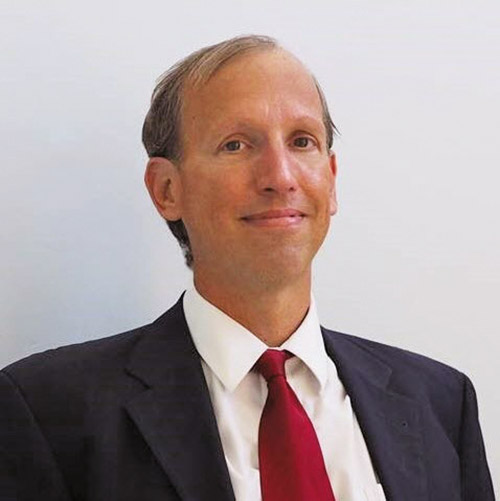
(Courtesy of YU) In Yeshiva University’s engineering-focused M.S. in Artificial Intelligence (AI), offered by the Katz School of Science and Health, students will learn the key skills most valued in today’s marketplace, including machine learning and deep neural networks, along with cutting-edge technologies such as reinforcement learning, voice recognition and generation, and image recognition and generation.
In the program’s project-based courses, students will build systems, models and algorithms using the best available artificial intelligence design patterns and engineering principles, all done in the heart of Manhattan, a global epicenter for artificial intelligence work and research.
Prof. Andrew Catlin is the program director for the AI program, with a background as a data scientist and production systems developer who has worked with such major clients as Fidelity Investments; Smart Money; Donaldson, Lufkin and Jenrette; Manufacturers Hanover Trust; and the National Football League.
He is also a founder of multiple tech startups, including Hudson Technology and Metrics Reporting. He teaches graduate courses in recommender systems, natural language processing and neural networks, among others.
Catlin believes that because of how rapidly AI is shaping all industries, career success will depend both on building and tuning algorithms as well as the ability to frame, deploy and monitor applications across multiple platforms, including cloud, mobile and edge.
YU News had a chance to talk with Catlin about his vision for the program.
What drew you into this field?
The work I did analyzing player data for NFL teams to improve player acquisition and game preparation triggered my desire to have a deeper understanding of what these technologies could achieve. Another draw came from work I did early on with collective intelligence applications, where organizations in the same industry found it beneficial to share data to develop best practices and speed their own organization’s improvement efforts.
What sort of student might be attracted to this program?
Students entering this program must be able to code from Day One, using a modern computer language and also have solid knowledge of probability and statistics, multivariate calculus and linear algebra.
Students will work with industry partners to design systems that not only deliver competitive advantage or societal value but also accumulate data to support future model refinement.
What are some of the career opportunities for a graduate of this program?
It is hard to imagine a sector of the economy that is not affected by the rapid evolution of AI. There will be abundant job opportunities in agriculture, energy, education, government, finance, health, industrial, internet of things, media, retail, smart homes, telecom and transportation, just to name a few.
Cognizant Technology Solutions, a leader in this area, projects that AI will create 21 new job categories in the next 15 years, and while they believe it will cause 19 million jobs to be lost, they will be replaced by 21 million new jobs.
What does the Katz School offer that makes it stand out?
YU’s AI program stands out through using advanced technologies such as transfer learning and reinforcement learning to work on data. Our program also designs challenging R&D experiences and industry partnerships where our students can dive deep into learning.
Then there is Yeshiva University itself. There will be many opportunities to create cross-disciplinary course work with virtually every other Katz graduate program as well as with the YU-affiliated Albert Einstein College of Medicine and the Benjamin N. Cardozo School of Law and entities like Standard & Poor’s Global and the Federal Reserve Bank of New York. And given YU’s historic and close relationship with Israel, we will no doubt be connected to the AI revolution happening in that country, recently described by Forbes as the key to that country’s post-pandemic economic recovery.
In addition, YU has world-class faculty in mathematics, economics, physics, biotech, cybersecurity and data analytics, such as Dr. Edward Belbruno, Dr. James Kahn and Dr. Lea Ferreira dos Santos. Our faculty also includes people like the head of strategic initiatives at Audible.com, the senior data scientist in the 5G lab at Verizon, and the head of data science at Standard & Poor’s.
Our M.S. in AI is designed not only to participate in the transformation being wrought by AI but also, where possible, lead and guide it.
Program information can be found at yu.edu/katz/programs/graduate/artificial-intelligence.
Visit the Katz School of Science and Health at www.yu.edu/katz/programs/graduate/artificial-intelligence.













